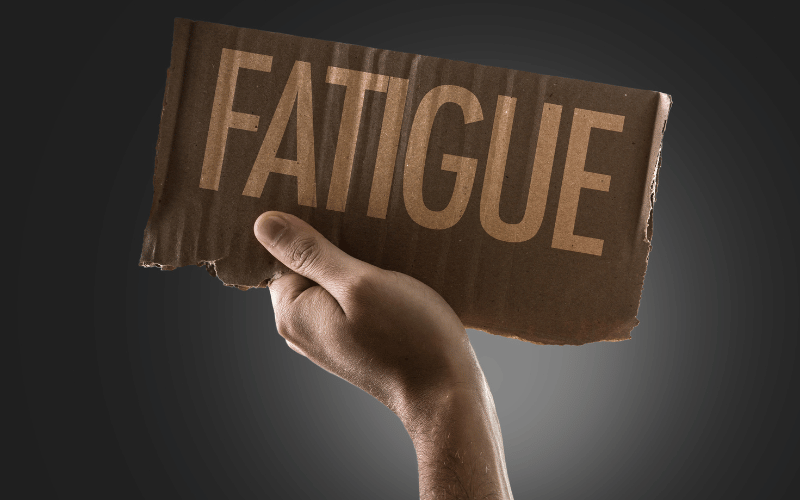Symptom 8: Fatigue

Fatigue in EDS patients isn’t just about feeling tired after a long day. It’s a pervasive, sometimes debilitating tiredness that isn’t necessarily tied to physical exertion. Even after a full night’s rest, many with EDS wake up feeling unrefreshed, struggling to muster the energy for day-to-day tasks.
The fatigue puzzle in EDS has many pieces. Chronic pain, a relentless companion for many with EDS, can drain energy levels. Sleep disturbances, often stemming from pain or conditions like sleep apnea, further exacerbate fatigue. Moreover, the body’s continuous effort to repair frequently injured tissues might also contribute to this overwhelming tiredness.
It’s not just physical fatigue; there’s a mental and emotional aspect too. Living with a chronic condition, the frequent doctor visits, managing symptoms, and the unpredictability of EDS can take a mental toll, leading to feelings of exhaustion.
Managing fatigue involves a multi-pronged approach. Prioritizing sleep, engaging in graded exercise routines, and practicing relaxation techniques can help. Diet plays a crucial role too; nutrient-rich foods can boost energy levels. Sometimes, counseling or support groups can offer solace and strategies to cope better.
Fatigue is often termed the ‘invisible’ or ‘silent’ symptom of EDS. It might not be as palpable as joint dislocations or skin issues, but its impact on quality of life is profound. Recognizing, addressing, and managing fatigue is crucial for overall well-being in EDS. (8)